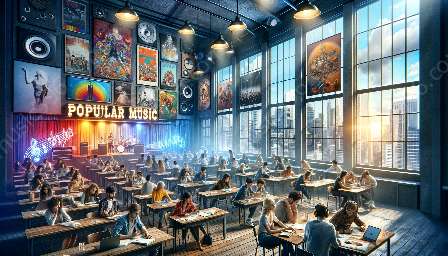Composing for film and television poses genre-specific challenges that intersect with soundtracks and popular music studies, requiring a unique approach to create an immersive auditory experience. In this topic cluster, we delve into the complexities and artistry involved in meeting these challenges.
Understanding the Role of Composing for Film and Television
The art of composing for film and television encompasses not only musical expertise but also a deep understanding of storytelling, emotions, and visual communication. Composers must navigate through genre-specific challenges to enhance the narrative and evoke the intended mood, often collaborating closely with directors, editors, and sound designers to achieve a cohesive audiovisual experience.
Impact of Genre on Composing
Various film and television genres, such as drama, action, horror, and romance, come with their unique challenges for composers. For instance, the pacing and intensity requirements in action sequences differ substantially from the nuanced emotional intricacies demanded by drama, reminding us that effective compositions are deeply intertwined with the audience's engagement and immersion.
Complex Relationship with Soundtracks
Film and television soundtracks play a crucial role in shaping audience perceptions and emotional responses. Composers encounter challenges in creating music that resonates with the narrative arc and characters while also allowing it to stand alone as a captivating soundtrack. This dynamic process requires a deep understanding of music's emotional and narrative impact.
Interplay with Popular Music Studies
Exploring the intersection of composing for film and television with popular music studies reveals the nuanced ways in which mainstream music influences and integrates with cinematic and televised storytelling. Understanding the evolving tastes and trends in popular music becomes essential for composers, especially concerning contemporary or period-specific settings.
Adapting to Technological Advancements
As technology evolves, so do the possibilities and challenges of composing for film and television. From electronic scoring techniques to spatial audio technologies, composers must continuously adapt and innovate to meet the evolving demands of the industry and audience expectations.
Conclusion
Composing for film and television presents a rich tapestry of genre-specific challenges that demand creativity, adaptability, and a profound understanding of both musical and visual storytelling. Through this topic cluster, we have uncovered the multifaceted nature of this art form and its intricate relationships with soundtracks and popular music studies.


